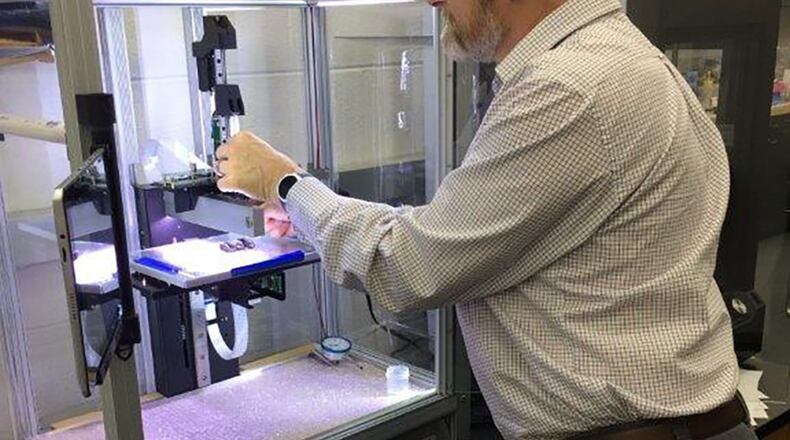Although the “Fellow” designation has been adopted by many professional societies, the criteria for awarding this designation vary significantly from society to society. The ACS Fellows Program uniquely recognizes a different standard of achievement and service. Specifically, the fellow of the American Chemical Society designation is awarded to a member who has made exceptional contributions to the science or profession and has provided excellent volunteer service to the ACS community.
“I am honored to receive this special award,” said Koerner. “I am proud that I was rewarded for the work that I did through outreach, to get the young folks in our area interested in the importance of chemistry in everyday life.”
As chair of the Dayton local section of ACS, Koerner organized a central regional event at the Dayton Convention Center with over 500 participants from around the globe.
“Spreading the word about chemistry is important to me,” he said.
“This is an impressive and well-deserved achievement,” said Timothy Sakulich, director of the Materials and Manufacturing Directorate. “Hilmar is a true leader amongst the community which resulted in this highly selective recognition as an ACS fellow.”
Among his achievements, Koerner has co-authored 150+ peer-reviewed publications and received numerous patents and awards.
Koerner is active in numerous technical communities. His research interests center on the physics and chemistry of high temperature polymer thermosets and molecular hybrids and nanocomposites, methods for light weighting and additive manufacturing applications.
Production of the first nanocomposite remotely actuated by an external light source and
published in “Nature Materials” is one result of Koerner’s research. This work was recognized worldwide.
“Substantial contributions by Dr. Koerner to the general field of polymer composites make him fully
deserving of being an ACS fellow,” said Dr. Timothy Bunning, chief scientist, Materials and Manufacturing Directorate.
The new ACS fellows will be recognized at the society’s fall national meeting in San Diego.
The Air Force Research Laboratory is the primary scientific research and development center for the Air Force. AFRL plays an integral role in leading the discovery, development, and integration of affordable warfighting technologies for our air, space, and cyberspace force. With a workforce of more than 11,000 across nine technology areas and 40 other operations across the globe, AFRL provides a diverse portfolio of science and technology ranging from fundamental to advanced research and technology development. For more information, visit www.afresearchlab.com.
About the Author
